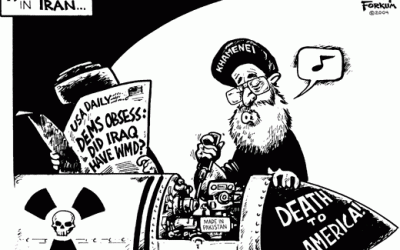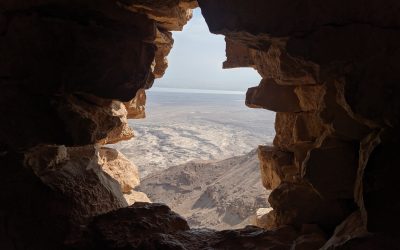In what can only be surmised as chaos, most of North Africa, Yemen, and the Iranian theocracy’s appendage, Lebanon, seem to be undergoing a very disturbingly rapid transition. Some attribute this state of apparent anarchy as the result of a lack of freedom and economic reform. From the sentiment emanating from the White House concerning Egypt, it seems as though there is no reason for debate as to the causation of such events. According to them, the only real issue at hand is how to keep the killing at a minimum. This is yet another example of either the administration’s naiveté or just more of the moral subjectivism/relativism the President claims the people he “leads” just don’t have enough of.
Freedom? Economic reform? Liberty, individualism, and Capitalism are all fine and dandy-do the people of either Tunisia or perhaps Egypt understand what real freedom is? Do they know the appropriate theoretical approach to economics that are moral and necessary? Anwar al-Sadat strayed from his predecessor’s “Arab Socialism” and took the necessary steps to recognize the sole rights respecting country in the Middle East-Israel. It cost him his life. If one were to ask why all of this unrest is erupting simultaneously in a handful of countries sharing the same geographical space; the typical answer would have to do with facebook or twitter.
These might be the new tools of the new revolutionaries but the fact of the matter is-ideas matter. What is driving people to riot, risk their lives, and protest in such a manner has very little to do with scheduling internet events and sharing tweets with followers. The protesters are being driven by an idea, more likely a set of ideas, and they are acting now because their political ends are seemingly in reach. What ideas are in play and what are the chances those ideas become political realities?
Lots can be learned from the administration of George W. Bush. Upon dropping the line “democracy is democracy”, Hamas and Hezbollah made little haste in preparing themselves for upcoming political elections. How did these two terrorist organizations win their constituents votes? They both established social development and welfare programs including, but not limited to, building and maintaining schools, hospitals, and soup kitchens. What this exposes is the fact that Islamist militants and organizations fear little the pressure to diversify. Before, Hamas and Hezbollah stood for one thing; the destruction of Israel. However, now that they’ve managed to develop any kind of a domestic policy, they’ve proven themselves to be efficient, orderly, and logically worthy occupiers of public office.
Knowing this, when one hears “young” and “secular” protesters in Egypt pleading for “democracy” and “economic reform”, it’s not entirely impossible to deduce that such anarchy will be exploited by the Muslim Brotherhood. After all, anarchism only breeds collectivism.
In a state of anarchy, no one individual retains their rights in the de facto sense. This is due to the fact that the government at hand is no longer capable of preserving the legitimate monopoly on the use of force. This monopoly is designed, in the moral sense, to protect the rights of a state’s citizens from aggressors; foreign and domestic. When a state no longer has the ability to enforce the rule of law, there is panic, there is a widespread search for order, for security. From the smoke and ashes comes a charismatic leader or gang that promises to renew stability. All that is required in return is absolute obedience.
Egypt seems to be the fulcrum point amidst the chaos. It has a population of roughly 80 million, significant oil reserves, the Suez Canal, and is the first Arab country that formally recognized Israel. It is also the home of the Muslim Brotherhood; the Islamist organization whose ideology inspired Osama Bin Laden-the formation of al-Qaeda, and apparently may even have the official stamp of approval from the Iranian government. When Gamal Abdel Nassers’ hopes and dreams of “Pan Arabism” imploded following the defeat of the Six Day War, the sentiment of the Arab world drifted increasingly from secular to mystic, and the Muslim Brotherhood provided the ideas for such a drift to occur.
While it seems obvious their is no uniformity in the ideology of the rioters in Tunisia or Egypt, there is cause for concern that Islamists in such countries are either calibrating their political power or worse, may exploit the instability to gain political power. Unfortunately, all the details may not become apparent until the dust settles.
Make no mistake, should Egypt fall to the Islamists, this will be the most embarrassing failure of American foreign policy since the collapse of the Shah’s government in Iran. America paid, and continues to pay, a heavy price for allowing the continued existence of a rights violating theocracy hell bent on destruction. There is no question that Hosni Mubarak is in no way a defender of individual rights, but whatever momentum Islamists can gain from this will be indicative of America’s effectiveness in implementing its foreign policy. Should the Islamist elements in Egypt maneuver in a manner similar to that of Hezbollah or Hamas, it is entirely conceivable that the Muslim Brotherhood may comprise a substantial chunk of Egypt’s new government.



